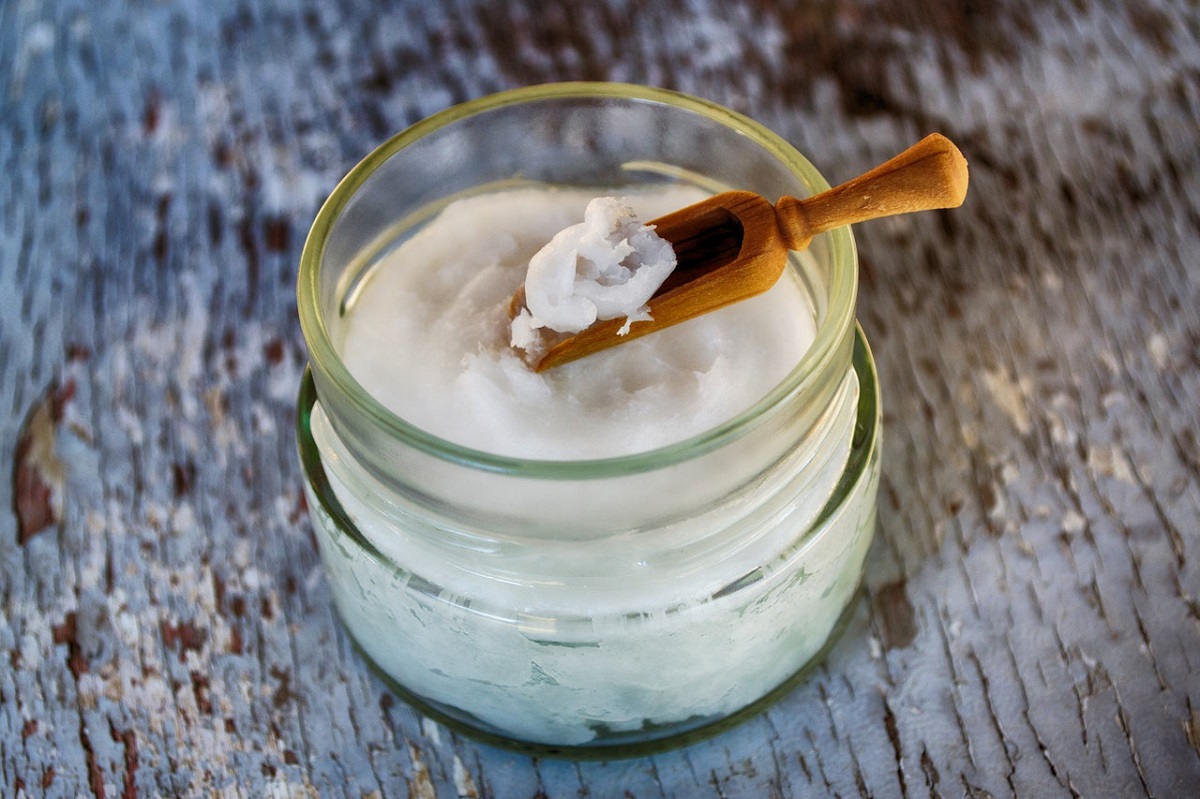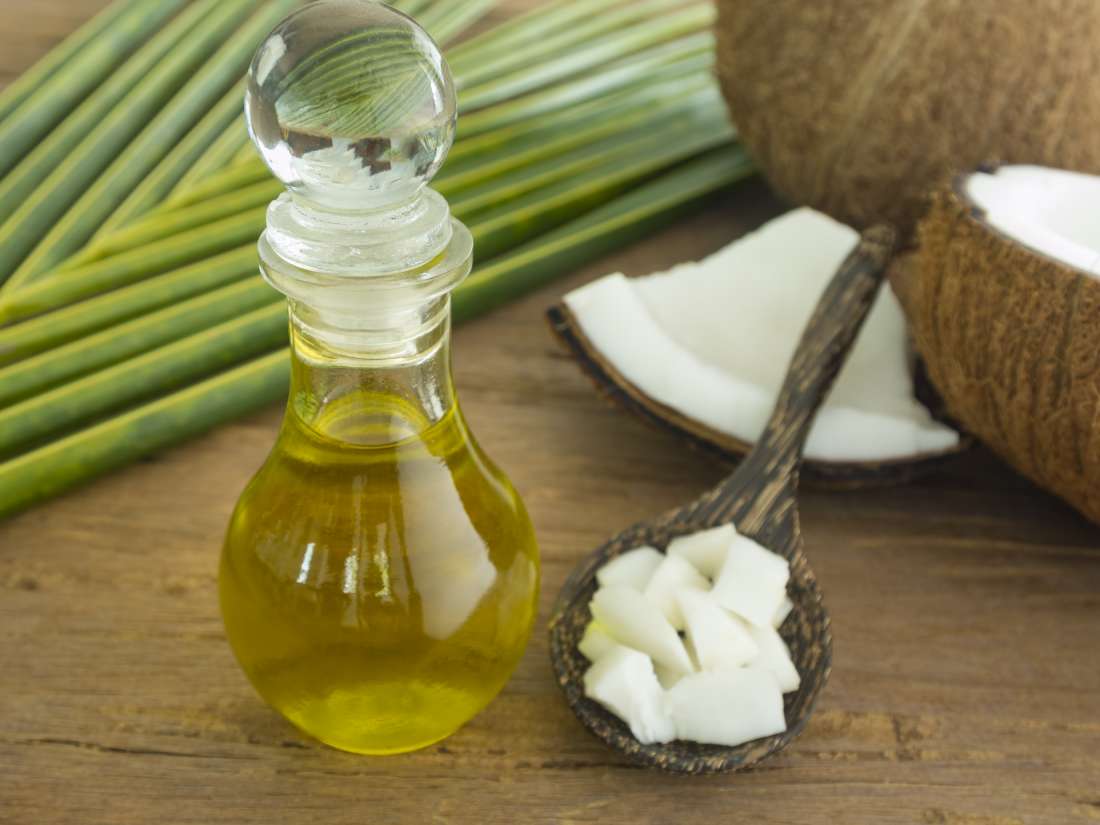Eczema, a common skin condition characterized by dry, itchy, and inflamed skin, can be a constant source of discomfort. Fortunately, nature provides a gentle and effective solution in the form of coconut oil. With its moisturizing, anti-inflammatory, and antimicrobial properties, coconut oil has emerged as a popular ingredient in homemade lotions specifically designed to soothe and relieve eczema symptoms.
This comprehensive guide will delve into the benefits and applications of coconut oil lotion for eczema, providing detailed instructions on how to create your own personalized lotion. We will explore various recipe variations tailored to different skin types and discuss precautions and storage tips to ensure the freshness and effectiveness of your homemade remedy.
Ingredients

Natural ingredients commonly used in coconut oil lotion recipes for target audience include:
- Coconut oil: Rich in fatty acids, it moisturizes and nourishes the skin, providing a protective barrier.
- Beeswax: Emulsifier and thickener, giving the lotion a creamy consistency and sealing in moisture.
- Shea butter: Rich in vitamins and fatty acids, it nourishes and softens the skin.
- Essential oils: Provide aromatherapy benefits, such as lavender for relaxation or peppermint for invigorating.
Choosing organic and unrefined coconut oil is crucial as it retains the natural nutrients and antioxidants that make it beneficial for the skin.
Beeswax and shea butter enhance the lotion’s moisturizing and protective properties, while essential oils add therapeutic benefits.
Recipe Variations
Depending on the severity and specific symptoms of your eczema, you can tailor your coconut oil lotion recipe to provide targeted relief.
Consider the following variations to address different skin concerns:
Dry and Itchy Skin
- Add 1/4 cup of aloe vera gel to soothe and hydrate dry, irritated skin.
- Grind 1/2 cup of oatmeal into a fine powder and add it to the lotion for its anti-inflammatory and anti-itch properties.
Inflamed Skin
- Incorporate 1 tablespoon of honey into the lotion for its antibacterial and anti-inflammatory benefits.
- Add a few drops of lavender or chamomile essential oil to promote relaxation and reduce inflammation.
Adjusting Consistency
- For a thicker lotion, add more coconut oil or beeswax.
- For a thinner lotion, add more water or aloe vera gel.
Step-by-Step s
Creating your own coconut oil lotion for eczema is a simple and rewarding process that allows you to customize the ingredients and scent to suit your individual needs. Follow these step-by-step s to craft a soothing and effective lotion that will help alleviate the discomfort of eczema.
Melting the Coconut Oil
Begin by melting the coconut oil in a small saucepan over low heat. Stir occasionally until the oil has completely liquefied. Remove the pan from the heat and allow the oil to cool slightly.
Mixing the Ingredients
In a separate bowl, whisk together the beeswax, shea butter, and vitamin E oil. Gradually add the melted coconut oil to the bowl while whisking continuously. Continue whisking until the ingredients are thoroughly combined and smooth.
Customizing the Lotion
To customize the scent of your lotion, add a few drops of your favorite essential oils. For a calming effect, try lavender or chamomile oil. For a refreshing scent, opt for peppermint or citrus oils.
To adjust the texture of the lotion, add more coconut oil for a thinner consistency or more beeswax for a thicker consistency. You can also experiment with adding other natural ingredients, such as aloe vera gel or honey, to enhance the soothing properties of the lotion.
Storing the Lotion
Once you are satisfied with the consistency and scent of your lotion, transfer it to an airtight container. Store the lotion in a cool, dark place for up to 6 months.
Benefits and Applications
Coconut oil lotion offers numerous benefits for individuals with eczema due to its unique properties.
Coconut oil is a rich source of fatty acids, which act as a natural moisturizer. These fatty acids penetrate the skin deeply, providing long-lasting hydration and nourishment. This helps to soothe dry, itchy skin and reduce the discomfort associated with eczema.
Anti-inflammatory Properties
Coconut oil possesses anti-inflammatory properties that help to calm and soothe inflamed skin. It contains lauric acid, which has been shown to reduce inflammation and redness. By reducing inflammation, coconut oil lotion can help to alleviate eczema flare-ups and promote skin healing.
Antimicrobial Properties
Coconut oil also exhibits antimicrobial properties, which can help to protect the skin from infections. It contains caprylic acid and capric acid, which are known for their ability to fight bacteria and fungi. This can help to prevent skin infections and further irritation in individuals with eczema.
Application
To use coconut oil lotion for eczema, simply apply it to the affected areas as needed. It can be used several times a day, or as often as desired. It is important to note that coconut oil can be comedogenic, meaning it may clog pores, so it is best to use it sparingly on the face.
Precautions and Storage

While coconut oil lotion is generally safe for most people, it’s essential to exercise caution to avoid potential adverse reactions. It’s advisable to conduct a patch test before applying the lotion to a larger area of skin, particularly if you have sensitive or allergy-prone skin.
To ensure optimal freshness and effectiveness, store the coconut oil lotion in an airtight container at room temperature. Avoid exposing it to direct sunlight or extreme temperatures, as this can degrade its properties. The homemade coconut oil lotion typically has a shelf life of up to 6 months when stored appropriately.
Patch Testing
To perform a patch test, apply a small amount of the coconut oil lotion to a small area of skin on the inner forearm. Cover the area with a bandage and leave it on for 24-48 hours. If any irritation, redness, or itching occurs, discontinue use and consult a healthcare professional.
Last Point
By embracing the power of nature, we can harness the remarkable properties of coconut oil to alleviate the discomfort associated with eczema. This homemade lotion, crafted with love and care, offers a gentle and effective solution to soothe, moisturize, and protect your skin.
Remember to consult a healthcare professional if your eczema persists or worsens, as they can provide personalized guidance and treatment options.
FAQs
Can coconut oil lotion be used on babies and children?
Yes, coconut oil lotion is generally safe for use on babies and children. However, it is always advisable to perform a patch test on a small area of skin before applying it to larger areas, especially for young children or those with sensitive skin.
How often should I apply coconut oil lotion for eczema?
The frequency of application will vary depending on the severity of your eczema and your skin’s response to the lotion. It is recommended to start by applying the lotion twice a day, morning and evening. You can gradually adjust the frequency based on how your skin feels, increasing or decreasing the applications as needed.
Can I use coconut oil lotion on my face?
While coconut oil lotion is generally safe for use on the face, it is important to consider your skin type. If you have oily or acne-prone skin, applying coconut oil lotion to your face may not be suitable as it can clog pores and lead to breakouts.
For those with dry or sensitive skin, coconut oil lotion can be a gentle and moisturizing option for the face.
